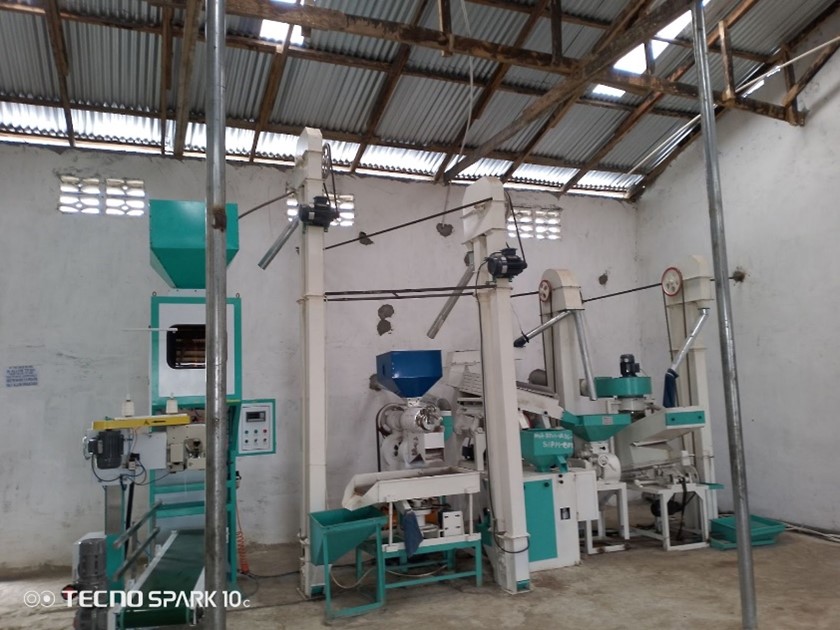The Ministry of Agriculture in Liberia has actively engaged in enhancing the capabilities of smallholder farmers through a targeted initiative, the Smallholder Agriculture Transformation and Agribusiness Revitalization Project (STAR-P). This project is primarily funded by the World Bank and the International Fund for Agricultural Development (IFAD) and aims to upgrade the productivity and competitiveness of small and medium-sized agribusinesses. Beneficiaries of the project have reported significant improvements in production, processing, and distribution capabilities for various agricultural products, including rice, oil palm, and horticulture. This intervention has not only bolstered the operational capacities of these farmers and agribusiness owners but has also contributed to economic opportunities in rural areas.
During a recent field supervision mission involving representatives from the World Bank, IFAD, and Liberia’s Ministry of Agriculture, the progress of the STAR-P project was closely assessed. The mission encompassed six counties: Montserrado, Bomi, Grand Cape Mount, Margibi, Bong, and Nimba, where the team evaluated the adherence to environmental and social safeguard standards within project implementation. The visit underscored the success of STAR-P in fostering development among smallholder farmers and agribusinesses, highlighting the importance of direct engagement with beneficiaries to evaluate tangible impacts on their agricultural practices and livelihoods.
One notable success story presented during the mission was that of Stephen B. Dorbor, an oil palm farmer from Grand Cape Mount County. Dorbor emphasized that the project enabled him to transition from labor-intensive manual processing to utilizing advanced industrial techniques, dramatically increasing his production capacity from 40 tins to 200 tins of processed oil. This transformation not only heightened his operational efficiency but also augmented his income substantially. However, he noted persistent challenges in market access, particularly the influence of middlemen who often manipulate prices, indicating a need for ongoing market support.
Additionally, beneficiaries like Ralph Nemenla Sonkarlay, Managing Partner of EverGreen Enterprise, shared how grants under STAR-P have catalyzed growth in the fruits and vegetables sector. Sonkarlay reported significant improvements in business revenue and expanded employment opportunities for rural farmers. The grants facilitated the acquisition of processing equipment, transportation vehicles, and packaging materials, which enhanced the operational framework of his business. His account illustrates the ripple effects of agricultural empowerment initiatives, not only supporting individual businesses but also stimulating local economies.
The overarching goal of the STAR-P project is to promote agricultural development in Liberia through innovative practices and improved market access. By facilitating better value chain development, the project seeks to ensure that smallholder farmers obtain the resources necessary to thrive within the competitive agricultural landscape. Furthermore, the ongoing financial support from international institutions such as the World Bank and IFAD underscores their commitment to the sustainability of Liberia’s agricultural sector, crucial for food security and economic resilience.
In a broader context, the Ministry of Agriculture’s active interventions, including grants to commercial banks for agricultural financing, illustrate a holistic approach to improving the entire agricultural value chain in Liberia. This strategy aims to enhance access to financial resources, enabling farmers and agribusinesses to make informed investments in their operations. As the STAR-P project continues to evolve, it remains essential for stakeholders to identify further opportunities for market integration and sustainable farming practices, ensuring the long-term viability of agricultural development in Liberia.
In summary, the initiative taken by the Ministry of Agriculture through STAR-P not only proves to be transformative for smallholder farmers and agribusinesses but also represents a critical step toward revitalizing Liberia’s agricultural sector. As beneficiaries like Dorbor and Sonkarlay exemplify, the positive impacts of such interventions can lead to improved livelihoods and economic opportunities in rural communities. Continued efforts to strengthen market access and provide financial support will be vital in maximizing the potential benefits of agricultural initiatives and securing a prosperous future for Liberia’s farmers.














